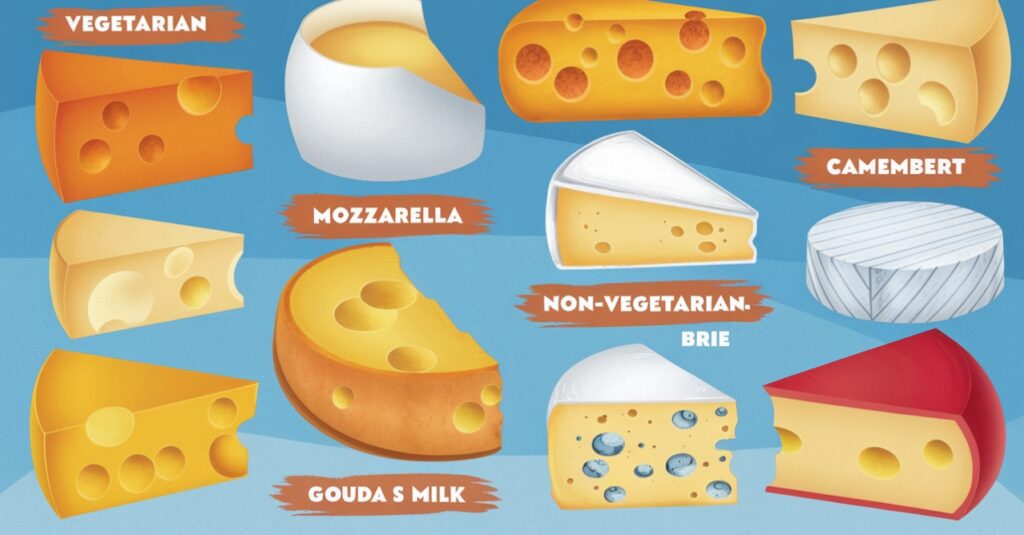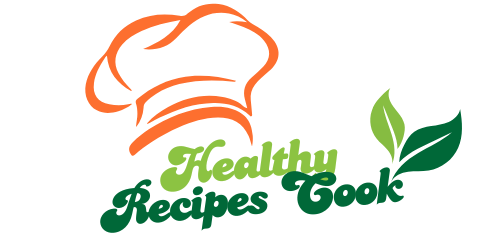Cheese lovers often find themselves asking an unexpected question: Is provolone vegetarian? This simple query unravels a complex debate rooted in the ingredients and processes used to make this popular Italian cheese. If you’ve ever wondered whether your favorite slice of provolone aligns with a vegetarian lifestyle, you’re not alone. Let’s dive deep into the world of provolone cheese to uncover the truth.
Table of Contents
What is Provolone Cheese?
Provolone cheese holds a cherished place in many kitchens, celebrated for its versatility and mild, tangy flavor. But what exactly makes provolone unique?
Origins and History of Provolone Cheese
Provolone is a semi-hard cheese with roots tracing back to Southern Italy. Traditionally made using cow’s milk, its name derives from the Italian word “provola,” meaning a round cheese. Over the years, it evolved from being a regional specialty to a global favorite, available in both mild (dolce) and sharp (piccante) varieties.
Fun fact: Provolone belongs to the pasta filata family, meaning it’s a stretched-curd cheese, much like mozzarella! This gives it its characteristic elasticity.
Explore More: Learn how to pair healthy dairy foods for optimal nutrition and taste.
Key Ingredients in Provolone Cheese
Provolone cheese typically includes:
- Cow’s Milk: The primary ingredient.
- Salt: Enhances flavor and aids in preservation.
- Enzymes/Rennet: Crucial for coagulating the milk into curds.
This final ingredient rennet is where things get tricky for vegetarians.
“Knowing the source of rennet is critical to determining whether cheese is vegetarian-friendly or not.”
Is Provolone Cheese Vegetarian? The Key Question
At first glance, provolone seems vegetarian. After all, it’s just milk, salt, and enzymes, right? However, not all enzymes are created equal, and this is where the role of rennet comes into play.
Understanding the Role of Rennet
Rennet is an enzyme used in cheese-making to coagulate milk, transforming it into curds. Traditional rennet is derived from the stomach lining of calves, making it unsuitable for vegetarians. For provolone cheese, animal-based rennet is the traditional choice, but there are alternatives.
Read More: Learn about vegetarian-friendly cheese options for those navigating a meat-free lifestyle.
Animal vs. Microbial Rennet: What’s the Difference?
While traditional rennet is animal-based, microbial rennet comes from bacteria, fungi, or yeasts. Many cheesemakers now use microbial rennet to cater to vegetarians, but it’s not yet universal. Checking labels or contacting manufacturers is often the best way to determine the type of rennet used.
Pro Tip: Curious about specific cheeses like Gouda? Check out this guide to vegetarian Gouda cheese.
“Next time you shop for cheese, look for labels that explicitly state ‘vegetarian rennet’ or ‘microbial enzymes.'”
Common Vegetarian Concerns with Cheese
It’s surprising how many people discover the animal origins of certain cheeses after years of enjoying them. So, why do these concerns exist?
Why Some Cheeses Aren’t Vegetarian
Animal rennet isn’t the only problem. Some cheeses may also include additives like animal-derived gelatin or colorants (e.g., carmine), adding to the confusion.
How to Identify Vegetarian-Friendly Cheeses
To make vegetarian-friendly choices:
- Look for certification labels like “suitable for vegetarians.”
- Check the ingredient list for “vegetarian rennet” or “microbial enzymes.”
- Contact brands directly to verify their production processes.
🌟 Pro Tip: Specialty cheese shops often have a wealth of knowledge on vegetarian options.
Vegetarian Alternatives to Provolone Cheese
If you’re a vegetarian who loves provolone but feels unsure about its ingredients, don’t worry. Luckily, there are many substitutes that taste great and align with vegetarian principles. Let’s explore these options and how to find them.
Plant-Based Provolone Substitutes
Cheese alternatives have come a long way in recent years. Today, you can find plant-based cheeses that closely mimic the flavor and texture of provolone. Many of these substitutes are made with simple, natural ingredients such as:
- Nuts: Cashews and almonds are often used to create a creamy base.
- Coconut Oil: This adds a rich, buttery texture.
- Soy or Pea Protein: These make the cheese stretch and melt better.
- Starches: Potato starch and tapioca help give cheese its familiar texture.
Popular brands like Violife and Follow Your Heart offer plant-based provolone that’s perfect for sandwiches, pizzas, or just snacking. They melt well and deliver the same comforting taste as traditional cheese.
“Explore: For recipe inspiration, check out this guide to low-calorie pasta recipes, which pair beautifully with plant-based cheese.”
Tips for Finding Vegetarian Cheese at the Store
Finding vegetarian cheese might feel confusing at first, but it’s easier with a few simple tricks. Here are some tips to keep in mind the next time you shop:
- Look for Labels: Check for packaging that says “suitable for vegetarians” or mentions “microbial enzymes.”
- Check Ingredients: Avoid products with “rennet” unless it specifically says it’s vegetarian.
- Ask for Help: At specialty cheese shops, staff can guide you to vegetarian-friendly options.
- Explore the Vegan Section: Many vegetarian cheeses are stocked alongside vegan ones.
🌟 Quick Tip: Imported cheeses like Parmesan or Provolone often use traditional methods, so they may not be vegetarian. Double-check labels if the cheese is from Italy.
How to Incorporate Provolone Cheese in Recipes
Provolone cheese is versatile and works beautifully in a variety of dishes. Whether you’re sticking with traditional provolone or using a vegetarian version, there’s no shortage of delicious meals to try.
Vegetarian Recipes Featuring Provolone
Here are some easy-to-make, vegetarian-friendly recipes where provolone shines:
- Grilled Vegetable Panini with Provolone: Layer grilled zucchini, roasted red peppers, and fresh basil between slices of sourdough bread. Add provolone and toast until crispy.
- Eggplant Parmesan with Provolone: Replace mozzarella with provolone for a sharper, tangy twist. This cheesy dish pairs perfectly with marinara sauce.
- Provolone-Topped Stuffed Bell Peppers: Fill bell peppers with rice, black beans, and spices. Top them with a generous slice of provolone and bake until bubbly.
“Cooking with provolone adds that extra touch of comfort it’s like a warm hug for your taste buds!”
Provolone Cheese Pairings: The Ultimate Guide
Pairing provolone with other flavors can take your meals to the next level. Its mild and tangy taste pairs well with both sweet and savory ingredients. Some ideas include:
- Fruits: Apples, pears, and dried figs bring a natural sweetness that balances the tanginess of provolone.
- Nuts: Walnuts, pecans, or almonds add crunch and a nutty contrast.
- Vegetables: Roasted eggplant, artichokes, or sun-dried tomatoes enhance the cheese’s flavor.
For a quick and fancy snack, serve provolone slices with a drizzle of honey or a dollop of fig jam. It’s a crowd-pleaser every time!
Common Myths About Vegetarian Cheese
There are plenty of misunderstandings about vegetarian cheese. Let’s clear up some of the most common myths and help you make confident choices.
Myth: All Cheese is Vegetarian
Not all cheese is vegetarian. Traditional cheeses like Parmesan, Pecorino Romano, and Gorgonzola often use animal rennet, which is derived from calves’ stomachs. If you’re unsure about a cheese, it’s always a good idea to check the label or ask the producer.
“It’s easy to assume all cheese is vegetarian, but reading the fine print can make all the difference.”
Myth: Vegetarian Cheese Tastes Different
Many people believe vegetarian cheese will taste odd or less flavorful. However, most vegetarian cheeses use microbial rennet, which doesn’t change the taste or texture. In fact, some vegetarians prefer cheese made this way because it has a cleaner, fresher flavor.
Fun Fact: Microbial rennet isn’t just vegetarian it’s also more sustainable than animal rennet, making it better for the planet.

FAQs About Is Provolone Vegetarian?
When exploring the world of cheese, it’s normal to have questions about which types are vegetarian-friendly. Let’s tackle some of the most common ones.
Is Provolone Ever Made Without Rennet?
Yes, some provolone cheeses are made without animal rennet. Instead, cheesemakers may use microbial or plant-based rennet. These versions are labeled as “suitable for vegetarians” or mention “microbial enzymes” on the package. Artisanal and organic cheesemakers are also more likely to offer rennet-free options.
Is Gouda Cheese Vegetarian?
It depends. Traditional Gouda often uses animal rennet, which means it’s not vegetarian. However, many modern brands produce vegetarian versions of Gouda by using microbial or plant-based rennet. Be sure to check the label for clarification.
Which Cheese Has No Rennet?
Some cheeses are made without any rennet at all. Examples include:
- Paneer: An Indian cheese made by curdling milk with lemon juice or vinegar.
- Ricotta: Often made without rennet, using an acid to curdle the milk.
- Cream Cheese: Typically produced without rennet.
These cheeses are excellent options for vegetarians looking to avoid rennet altogether.
What Cheese Can Vegetarians Eat?
Vegetarians can enjoy cheeses made with microbial, plant-based, or acid-set methods. Look for varieties labeled as “suitable for vegetarians.” Common vegetarian-friendly options include:
- Cheddar (when made with microbial rennet)
- Mozzarella (check for vegetarian certification)
- Halloumi (if it uses microbial rennet)
- Cottage cheese and cream cheese (usually rennet-free).
Always double-check the label to be sure!
Is Cheddar Cheese Considered Vegetarian?
It can be! While traditional cheddar often uses animal rennet, many modern brands now use microbial rennet to appeal to vegetarians. Check the label for terms like “microbial enzymes” or “suitable for vegetarians.” Some popular vegetarian-friendly cheddar brands include Cabot and Tillamook.
How Can I Check if My Provolone is Vegetarian?
Start by reading the ingredient list. Look for terms like “microbial enzymes” or “vegetarian rennet.” Additionally, some products are certified as vegetarian and will have this indicated on the label. If you’re still unsure, reach out to the manufacturer for confirmation.
Conclusion: Making Informed Choices About Cheese
When it comes to understanding whether provolone and other cheeses are vegetarian, knowledge is truly power. By learning about ingredients like rennet and exploring alternative options, vegetarians can enjoy cheese guilt-free without compromising their values.
Provolone cheese, like many others, can be made in different ways depending on the type of rennet used. While traditional methods often involve animal-derived rennet, vegetarian options are becoming more widely available. Thanks to the rise in demand for plant-based and vegetarian-friendly foods, it’s easier than ever to find cheeses that suit a vegetarian lifestyle.
For those who want to explore beyond provolone, there are numerous vegetarian-friendly cheeses to try. From rennet-free varieties like paneer and ricotta to microbial-rennet alternatives like mozzarella and cheddar, the options are plentiful. Additionally, plant-based cheeses provide a great choice for those who want to completely avoid dairy products.
Ultimately, making informed choices is about reading labels, asking questions, and staying curious. Whether you choose traditional cheeses, vegetarian-friendly options, or plant-based substitutes, you can enjoy your favorite flavors while staying true to your dietary preferences.
“Cheese lovers, rejoice! With a little effort, you can savor the creamy, tangy, and delicious world of cheese while supporting your values.”

